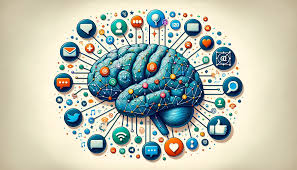
The Social & Ethical Implications of Emerging Technologies: Balancing Progress with Responsibility
The rapid advancement of technology brings transformative benefits, but also complex social and ethical challenges. From AI bias to genetic privacy, society must navigate these issues to ensure innovations serve humanity equitably.
1. AI & Algorithmic Bias
Artificial intelligence can perpetuate societal inequalities when:
✔ Training data reflects historical biases (e.g., facial recognition errors for darker skin tones)
✔ Automated hiring tools favor privileged demographics
✔ Predictive policing systems target marginalized communities
✔ Training data reflects historical biases (e.g., facial recognition errors for darker skin tones)
✔ Automated hiring tools favor privileged demographics
✔ Predictive policing systems target marginalized communities
Solution: Diverse development teams and "ethics-by-design" AI frameworks (e.g., EU AI Act).
2. Genetic Engineering & Bioethics
CRISPR and gene therapies raise critical questions:
- Should we edit human embryos? (Germline modification bans in 40+ countries)
- Who gets access to expensive gene therapies?
- Could "designer babies" worsen social inequality?
Case Study: China’s He Jiankui scandal (2018) demonstrated the need for global oversight.
3. Surveillance & Digital Privacy
Modern surveillance tech creates tensions between:
🔒 Public safety (e.g., crime prevention)
🔓 Personal freedom (e.g., China’s Social Credit System)
🔒 Public safety (e.g., crime prevention)
🔓 Personal freedom (e.g., China’s Social Credit System)
Emerging Threat: Neurotechnology could soon read thoughts—requiring new "cognitive privacy" laws.
4. Automation & Economic Disruption
By 2030, automation may:
- Displace 400 million workers (McKinsey)
- Widen wealth gaps as tech companies consolidate power
- Require universal basic income (UBI) trials (e.g., Kenya’s Give Directly program)
5. Environmental Tech Justice
Green innovations often exclude vulnerable groups:
🌱 E-waste recycling burdens developing nations
🌱 Carbon offset projects displace indigenous communities
🌱 Renewable energy patents limit global access
🌱 E-waste recycling burdens developing nations
🌱 Carbon offset projects displace indigenous communities
🌱 Renewable energy patents limit global access
Ethical Alternative: Open-source climate solutions (e.g., Solar punk movement).
6. Social Media’s Societal Impact
Platform algorithms drive:
📉 Mental health crises (Teen depression rates up 60% since 2011)
📈 Political polarization (Echo chambers radicalizing users)
💰 Data exploitation (Microtargeted ads manipulating behavior)
📉 Mental health crises (Teen depression rates up 60% since 2011)
📈 Political polarization (Echo chambers radicalizing users)
💰 Data exploitation (Microtargeted ads manipulating behavior)
Regulatory Response: EU’s Digital Services Act mandates transparency.
The Path Forward: Responsible Innovation
Key strategies:
1️⃣ Multi stake holder governance (Tech firms + governments + civil society)
2️⃣ Ethics education for STEM students
3️⃣ Whistleblower protections (e.g., Frances Haugen’s Meta leaks)
1️⃣ Multi stake holder governance (Tech firms + governments + civil society)
2️⃣ Ethics education for STEM students
3️⃣ Whistleblower protections (e.g., Frances Haugen’s Meta leaks)